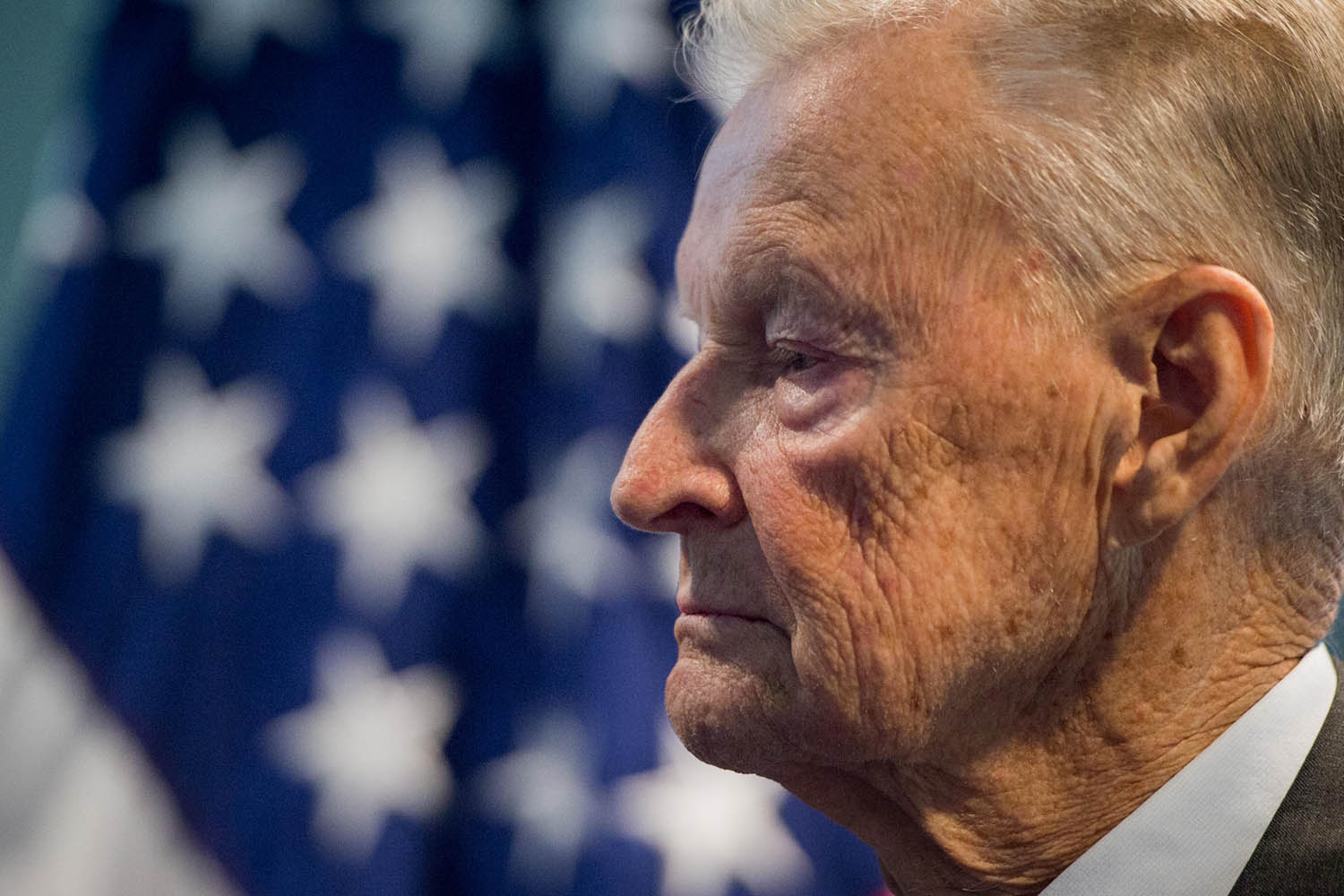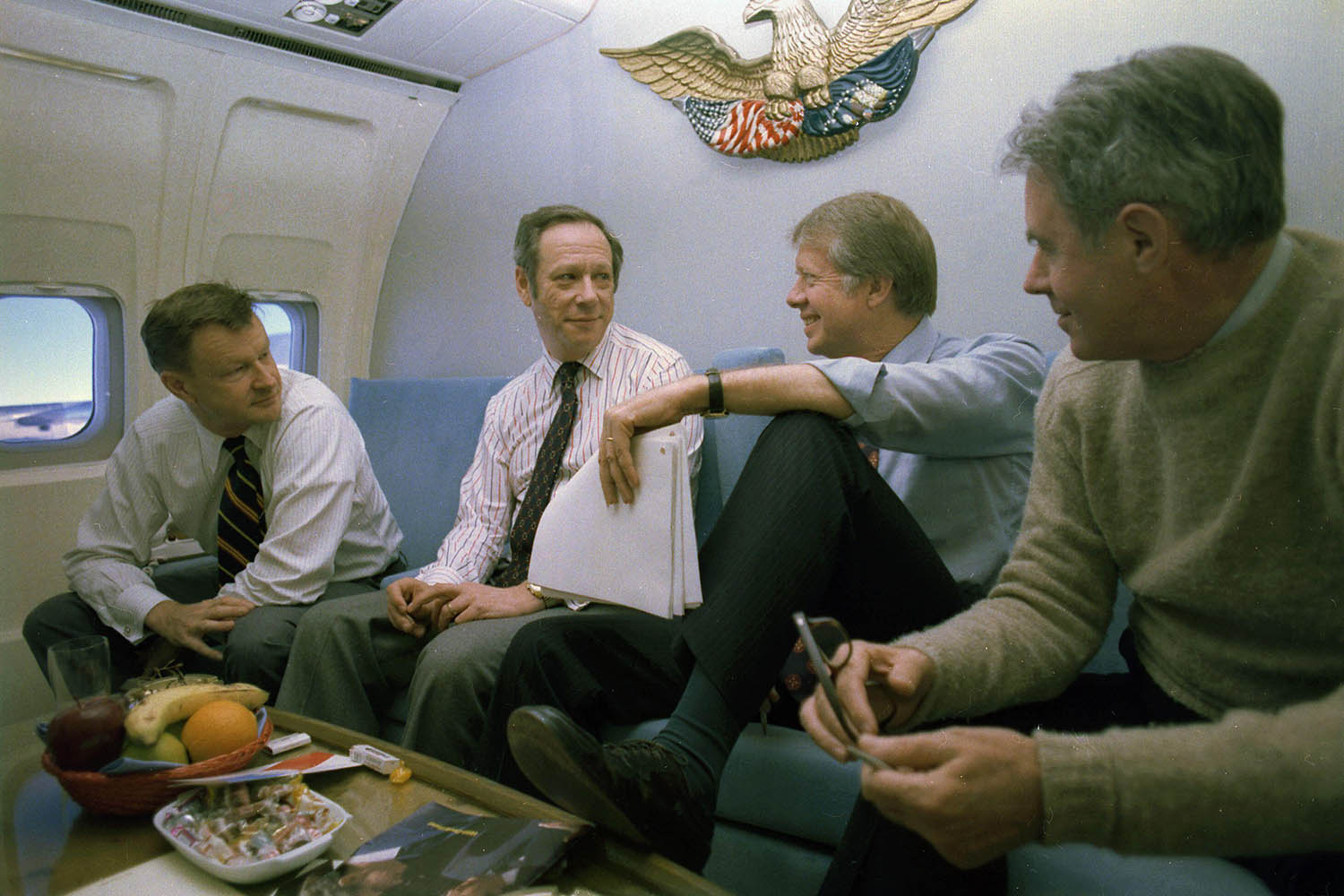At 3am on 3 June 1980, in the last year of the one-term presidency of Jimmy Carter, his national security adviser Zbigniew Brzezinski was woken by the phone on his bedside table. When he picked up the receiver, he was told the US was under nuclear attack. More than 200 intercontinental ballistic missiles had been launched from the Soviet Union. Another call followed a minute later. There were in fact more than 2,000 missiles in the air. Brzezinski ordered the US air force to scramble 200 jets. He was about to alert the president to tell him that Armageddon had come, when the phone rang for a third time. It was a false alarm. Someone at Air Defense Command had put a worst-case simulation training video into the wrong computer system, only for it to be projected on the monitoring screens as a real event.
There is something about this episode that captures both the existential stakes of American diplomacy in the cold war and the whiff of tragicomedy that lingers about the Carter administration. The Iran hostage crisis – which had begun the previous November, when 66 Americans were taken hostage by Iranian revolutionaries at the US embassy in Tehran – was to be the coup de grace in a story of dithering and then disaster.
In April 1980, Carter and Brzezinski had ordered Operation Eagle Claw, an attempt to rescue the hostages with special forces. Sandstorms and technical problems forced Carter to abort the mission – worse still, one of the US helicopters crashed with a transport aircraft on their return, killing eight Americans.
Ayatollah Khomeini crowed that the rescue had been thwarted by the “angels of God”. Margaret Thatcher had been told of the operation in advance in a handwritten note from Carter given to her at Chequers. She gave her full support, then threw the letter into the fire. It went up in smoke, along with Carter’s chances of winning the election against Ronald Reagan in November.
And yet, as Edward Luce makes clear in this elegant and comprehensive book, there was more far-sightedness and intellectual rigour in the foreign-policy record of the Carter administration than this caricature allows. Brzezinski, a Polish-born scholar-adviser and expert Sovietologist – nicknamed Woody Woodpecker because of his slicked-back hair, aquiline features and high energy – played a significant, vital role in that.
Born in Warsaw in 1928, Brzezinski was the son of a Polish diplomat of noble origins. Having moved to Canada with his family in 1938, he came of age during the transition from the second world war to the cold war. In 1944, Brzezinski had read the reports of how the Nazis destroyed the Warsaw uprising with a relentless bombing campaign as the Red Army sat idly by. When news arrived in May 1945 of the Führer’s death, his joy was checked by unease that half of Europe was under “another menacing dictatorship just as brutal as Hitlerism”.
Brzezinski was a deeply patriotic American but there were grumbles that his lifelong attachment to Polish nationhood made him an overzealous cold warrior, when US interests might have been better served by detente. His entry into politics from academia came when he joined John F Kennedy’s Camelot roundtable of intellectuals. He went on to work for Lyndon B Johnson, though he was never at the centre of his court.
Brzezinski was loyal to Carter but also suffered from the president’s tendency to vacillate
Brzezinski was loyal to Carter but also suffered from the president’s tendency to vacillate
The similarities between Brzezinski’s life story and that of Henry Kissinger were noted by contemporaries. They were both émigrés from Europe; both respected scholars who cut their teeth at Harvard; both slightly outside the Wasp elite, but who nonetheless cultivated allure and access. Both were recipients of the patronage of different Rockefeller brothers. Kissinger was a Republican and Brzezinski a Democratic, but both possessed a capacity for reinvention and an ability to reach across the political aisle.
Yet Kissinger, five years older, always seemed a few steps ahead, including beating Brzezinski to a tenure at Harvard. They maintained a strained friendship, and one that took a turn for the worse over the cold war in the 1970s. Brzezinski stung his rival not only by criticising the policy of detente but also Kissinger’s overreliance on the “secretive and personal style” in US foreign policy. In response, Kissinger described Brzezinski as a “theoretician of anti-communism without practical experience in international relations”.
Brzezinski was the Carter administration’s foremost grand strategist. But as Luce shows, he was hampered by bureaucratic and ideological turf wars with the state department, under the genteel Cyrus Vance, who thought him too gung-ho. Brzezinski was partly to blame for the poor relations with Helmut Schmidt, the West German chancellor and practitioner of Ostpolitik. He made more enemies when he was pictured on the Khyber Pass at the border of Soviet-controlled Afghanistan holding a submachine gun in February 1980. Some even argued that he had helped coax the Soviets into the quagmire.
Newsletters
Choose the newsletters you want to receive
View more
For information about how The Observer protects your data, read our Privacy Policy

Brzezinski was loyal to Carter but he also suffered from the president’s tendency to vacillate when a fork in the road approached – not to mention his capacity for gaffes, such as hailing the Shah of Iran as “an island of stability in one of the more troubled areas of the world”.
In Luce’s account of these years, Brzezinski cuts a talented but frustrated figure. In the final assessment, he did not emulate Kissinger’s ability to put his finger on the vast scales of the US bureaucracy at the decisive moment. As Carter limped to defeat, there was his old rival at the end of the administration, bemoaning the “disintegration of America’s ability to shape events”.
And yet the path of the cold war ultimately vindicated Brzezinski’s work, explaining why Reagan was twice tempted to make him his national security adviser. Right back to his master’s thesis at McGill University in Montreal, Brzezinski had argued that the “nationalities problem” was the achilles heel of the Soviet Union.
It was a Radio Free Europe worldview that saw him develop a close relationship with Pope John Paul II. And it was a lifelong vision that came to fruition in June 1989 when Solidarity swept the Polish election, starting the chain of events that led to the fall of the Berlin Wall. In a poetic turn of history, Zbig’s son Mark became ambassador to Poland under Joe Biden.
In his later years, Brzezinski remained a perceptive observer of international affairs. He fretted about the fate of Ukraine, which he saw as crucial to the future of Europe. Disaffection in Russian-speaking areas and political instability, he saw, could open the door for the Kremlin to undermine Ukrainian statehood. He had been a mentor to political scientist Samuel Huntington in his Harvard days. Notwithstanding his friendship with Francis Fukuyama, he knew that history was far from over.
by Edward Luce is published by Bloomsbury (£30). Order from observershop.co.uk to receive a special 20% launch offer (ends 11 June). Delivery charges may apply
Photographs by Alamy

